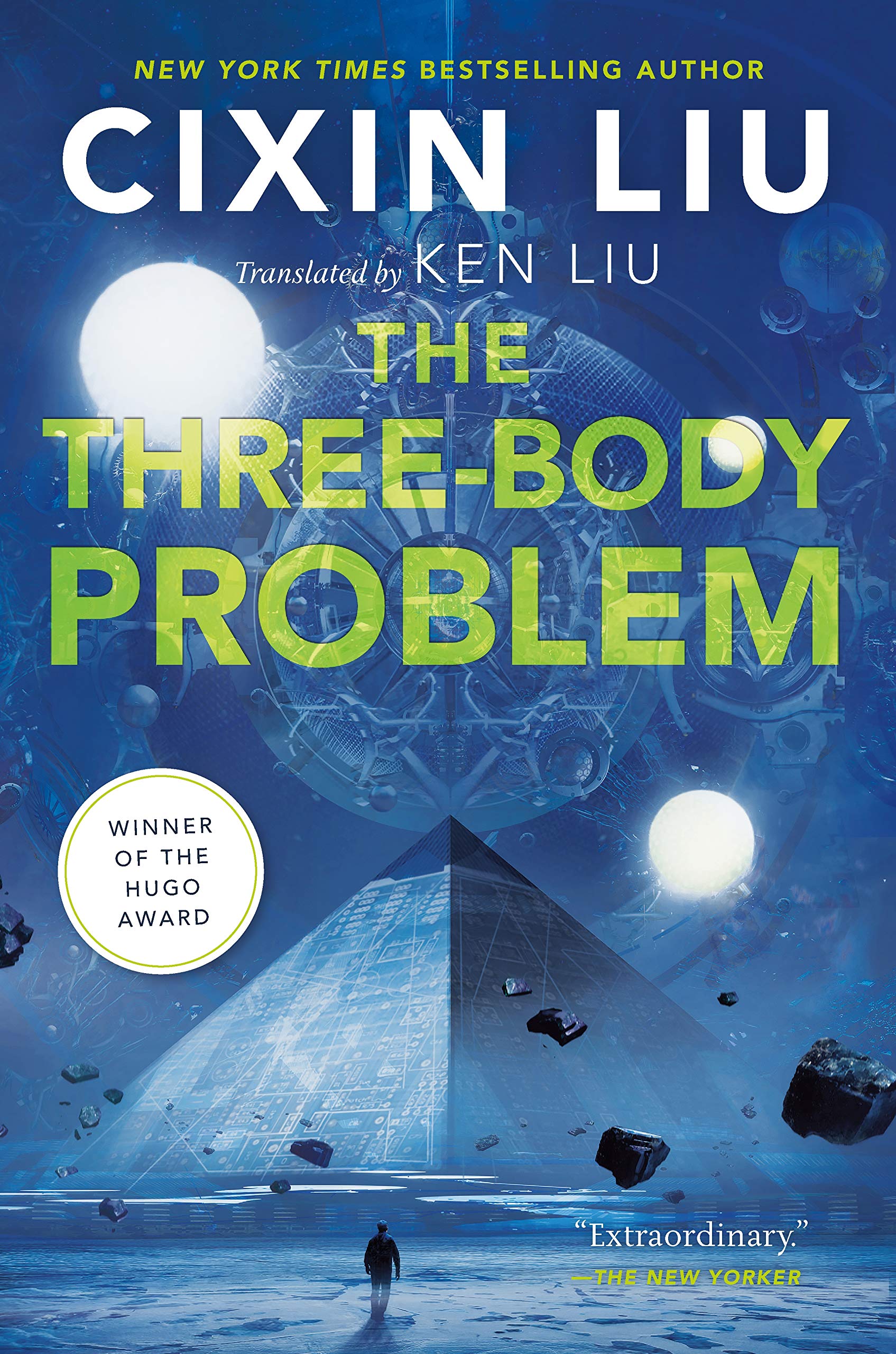
The Three-Body Problem
I'm not sure there's any book I've heard more about that I haven't read than The Three Body Problem: a fairly wide swath of folks I know and/or follow have read it and opined upon it at length. I get it!
I did not very much like the book nor think it was good, though there were parts of it that were interesting and will stick with me for a while. It felt like a mashup of many things:
- a moody examination of the blood wrought by the Cultural Revolution
- a conspiracy thriller grounded in academia and the ivory tower
- a series of interesting thought experiments and scientific navelgazing (not meant in a derogatory sense!)
These three things, I think, could melange together fairly well — or at least fairly interestingly. The problem, at least for me, is that the author clearly had the most fun (and thus devoted the most time) towards the third, to the point where the final act of the book was delivered as either soliloquy or as Wikipedia plot summary.
Science fiction gets a bad rap, I think, for having wooden characters. Take Legend of the Galactic Heroes ↗ for instance — none of its characters particularly evolve in any meaningful sense, because that's the truth of having a story where most folks have already completed their evolution as bildungsromans! At some point in life, you might be who you are; plot can be wrought from the dynamics of fully developed characters rather than from the dynamics of those characters' changes.
The same cannot be said for The Three Body Problem. I struggle to think of a meaningful personality trait in any of the characters. Even Ye Wenjie, the catalyst and most interesting character, feels less like a human and more like a vessel for events that have occurred to her 1. Wang Miao was given a wife and child who we hear about precisely zero times after they become irrelevant to the plot (he also has a photography habit which exists solely to serve the plot.)
It's a book that utterly fails the "can you imagine any of these people having a favorite book?" test.
The wooden character work is exacerbated by a prose that abandons any pretense of fluidity or poetry as soon as it hits the science stuff, and the science stuff is fun to imagine about (quantum superposition! chaotic and stable periods!) but barely holds up to scrutiny.
I am being very negative, and I don't like being negative about books that leave indelible images with me. I think the author had a draft of this book in their head with a specific thesis, one crystalized in this lovely passage:
"Were they heroes?" "No." "Were they villains?" "No." "...What were they?" "History."
It's not the subtlest bit of prose, but I think it's an interesting one — that the engine of progress is rarely driven by obvious ideological virtues or vices and that ascribing morality to chaos is the role of hagiographers, not historians.
I'm not going to read the next two books of the series; I read the plot summaries, and they seemed interesting, but not interesting enough to deal with fifteen hundred pages of bad character work.
Footnotes
-
"But Justin, that's what we all are — vessels for the things that happen to us!" Okay, fine, but you know what I mean. ↩
© 2023 Justin Duke • I hope you're wearing your favorite sweater.